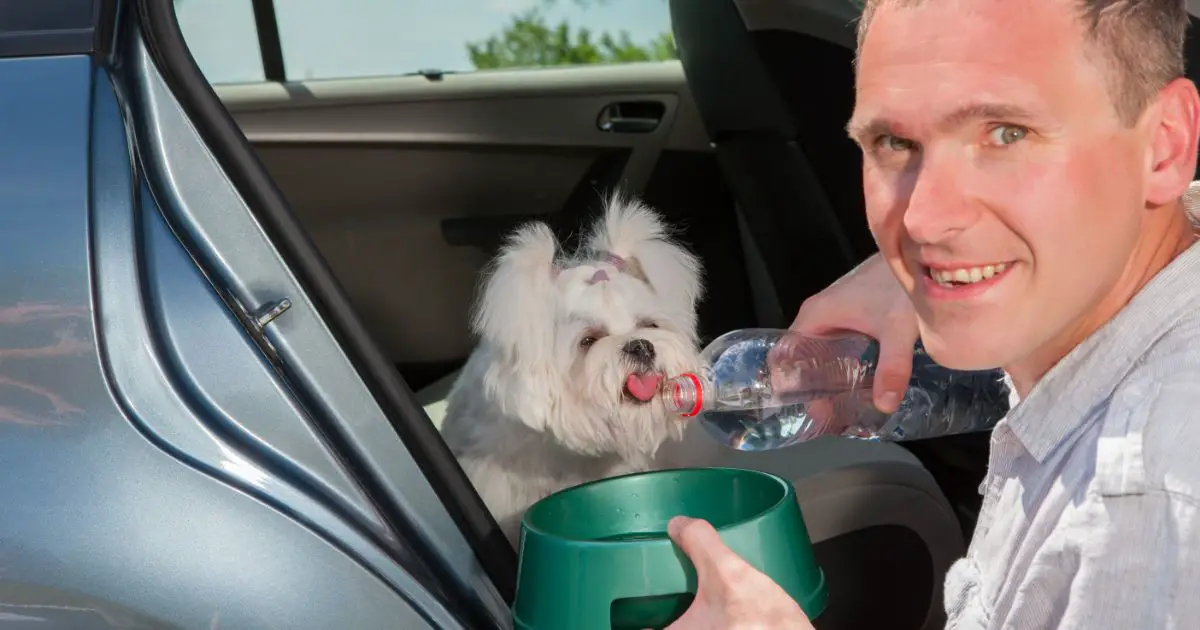Puppies are similar to newborn human babies in a lot of ways. They are young, full of life, and require much attention. There are several things puppies don’t know how to do, and we have to take care of them.
One such aspect is their diet. Your pup’s diet is very important, especially in the early stages of life. The diet is not only about food but the type and amount of fluids consumed.
Most posts talk about the food part of the pup’s diet but leave out water. But, in this post, we’ll answer the question of how much water does a puppy need?
Read till the end as you’ll learn all you need to know about planning your pup’s water requirement.
How Much Water Does a Puppy Need?
All puppies are not the same, and different factors can affect a puppy’s water intake. It would be inappropriate to use the same yardstick to judge all puppies because they vary in size, activities, and medical conditions.
Let’s look at factors determining how much water your puppy needs.
Body Weight or Size
The first and most obvious factor is the size or weight of your puppy. If you’re familiar with different dog breeds, you’ll know that puppies vary in size. Bigger breeds like Caucasians and rottweilers typically have larger puppies. In contrast, chihuahuas, pugs, and other parlor dogs have smaller puppies.
The amount of water appropriate for these larger puppies will be excessive for the smaller breeds. So we have to consider their sizes when creating a water routine.
Activity Levels
Puppies are relatively energetic and playful, but some are reserved. The amount of water required by a puppy will also depend on its activity. If your puppy plays a lot, it will get thirsty often. However, a less active puppy will need little water.
Medication
An important part of caring for our puppies is giving them all the necessary shots and medications. Some medications stimulate thirst. Puppies under such medication will require a higher amount of water.
Other factors include body temperature, wet food intake, dry food intake, liver disease, and more.
Water Requirements For Puppy

With respect to size, your dog should drink about 40ml of water per pound of body weight daily. This requirement is not set in stone because it can be affected by any of the factors we’ve mentioned above. Here is a general idea of the water requirement how for different dog sizes:
- Dogs weighing 3 to 5 pounds need 60 to 200 ml of water daily, equivalent to a quarter of a cup.
- Dogs weighing 6 to 10 pounds need 120 ml to 400 ml which equals half a cup to one and a half cups daily.
- 11 to 20 pounds need 220ml to 800 mo, equivalent to one to three cups daily.
- 21 to 30 pounds need 420 ml to 1200ml, which equals one to five cups daily.
- 31 to 40 pounds need 620ml to 1600 ml, which equals three to six and a half cups daily.
- 41 to 50 pounds need 820 ml to 2000ml, which equals three to nine cups daily.
- 51 to 60 pounds need 1020ml to 2400ml, which is about four to ten cups daily.
Remember that these quantities can vary depending on the situation.
Water is an important part of our pup’s diet. It helps with digestion and transportation of nutrients and blood.
What Is Dehydration in Puppies?
Dehydration refers to low water content in puppies. It can be dangerous because puppies are in their growing phase and are susceptible to kidney diseases.
Let’s look at some causes of dehydration in puppies:
Indigestible material
Puppies are similar to babies – they want to put everything in their mouths. Your puppy can swallow an indigestible material causing vomiting or diarrhea. As a result, the puppy loses water content.
Hot Weather
When the weather is hot, your puppy loses a lot of water. Dogs like sticking out their tongues when they’re feeling hot, but water is lost from the surface of their tongues. This is why you need to leave plenty of water when it’s hot outside.
Exercise
Puppies also play a lot, and this can lead to dehydration.
Diseases
Some diseases affecting the kidney and liver can cause excessive body water loss.
Signs of Dehydration in Puppies
Your puppy might not get enough clean water, which is unhealthy. Here are ways to tell that your puppy is dehydrated without calling the vet.
Dry Gum
An easy way to tell if your dog is dehydrated is with the gums. The gums need a constant fluid supply, and you can tell from the surface. The gum will be wet and shiny if your dog has enough water.
However, if your dog is dehydrated, the gums will be dry and desiccated.
Inactivity
Puppies are very active and love playing around. It’s odd for a puppy to be quiet or inactive for a long time. Dehydration is a common cause of inactivity in puppies.
Dry Eyes
You can also check your dog’s eyes for signs of dehydration. The eyes should be moist and full of life. A dehydrated dog will have dry scabs around the eyes, and the eyeball will appear hollow.
Can My Puppy Be Overhydrated?
Your puppy can be overhydrated. Puppies are still growing and might be unable to regulate their water intake, drinking more than necessary. Also, overhydration can be a symptom of polydipsia.
If your pup is overhydrated, you’ll see signs like excessive salivation, bloating, loss of coordination, nausea, dilated pupils, vomiting, loss of appetite, and lethargy.
Conclusion
Caring for our dogs is a must because they are not as aware as we are. For this reason, we must constantly look out for their diets, water intake, and medication. Proper hydration is an important part of your dog’s health.
Puppies and dogs need the right amount of water to stay healthy. And while we’ve answered the question “how much water does a puppy need?” there are more things to learn about your dog’s health and raising puppies.
